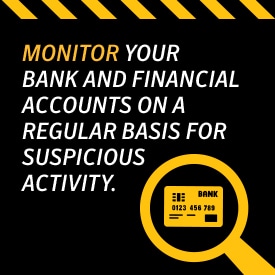Data breaches aren’t going anywhere--what you need to know
It may seem like stories of massive data breaches are popping up in the news on a weekly basis these days. Unfortunately, this is not surprising.

It may seem like stories of massive data breaches are popping up in the news on a weekly basis these days. Unfortunately, this is not surprising. As technology progresses, all of our information moves to the digital world, and, as a result, cyber attacks are becoming the new wave of crime. Corporations and even small businesses are extremely attractive targets to cybercriminals, simply due to the large payday of data that can be nabbed in one fell swoop.
What is a data breach and how and why do they happen?
The main reason that cybercriminals are stealing personal information is for use in identity theft.

Targeted attacks from cybercriminals are generally carried out in four ways: exploiting system vulnerabilities such as out of date software, people using weak passwords such as their pet’s name minus numbers and symbols, SQL injections and targeted malware attacks. When systems don’t have the latest software updates it can create a hole that an attacker can use to sneak malware onto the computer that can steal data. Weak and unsecure user passwords can make it easy for an attacker to crack, especially if the passwords contain whole words or phrases. SQL injections allow for drive-by downloads that will inject spyware or malware onto the computer without the user doing anything to contract the malware. Targeted malware attacks are when attackers use spam and spear phishing tactics to try and trick the user into revealing user credentials, downloading malware attachments or directing users to vulnerable websites.
What Can I Do To Protect My Information?
Being proactive about your accounts is the best security measure that you can take to do your part to help prevent data breaches.
- Make sure that you use strong, secure passwords for each account you access, and be sure not to use the same password across multiple sites. Keeping track of various passwords can seem like an insurmountable feat, but there are utilities such as Norton’s ID Safe Password Manager to help you keep track of all of those random strings of letters, numbers and characters.
To keep your personal identity safe, it’s important to keep a watchful eye on your information.
- Monitor your bank and financial accounts on a regular basis for suspicious activity. If the companies you do business with offer activity alerts via text or email, sign up for them.
- Take action as soon as possible if you do see suspicious activity. Contact the bank or institution the suspicious activity originated from. Notify them of the suspicious transaction and inform them that your information was stolen in a data breach.
- Close out of all online banking accounts on your phone whenever you aren’t using them, and give your phone a password it if doesn’t have one. Having to enter a password every time you use your phone is tedious, but it also provides a solid line of defense if your device is stolen.
- Use secure URLs that begin with https:// on reputable, well-known sites when entering credit card information. You may also wish to use disposable credit cards when making online purchases.
- Implement high-quality security software that includes malware and virus protection. Keep it updated.
- Back up your files and ensure their safety. Norton Online Backup 25GB offers military-grade encryption for sensitive information and easily transfers files among computers without issue. The system is also automatic.
- Wipe the hard drive on your old computer before you recycle it.
- Use a removable flash drive to store financial and other sensitive information.
- Avoid oversharing on social media. Never post anything pertaining to sensitive info, make your profiles private, etc.
Data breaches are here to stay, and the best defense against them is a good offense. Educate yourself and stay diligent about monitoring your online life. Luckily, there are laws in place to protect you, but it is up to you to report any suspicious activity and fight back against cybercrime.
Editorial note: Our articles provide educational information for you. Our offerings may not cover or protect against every type of crime, fraud, or threat we write about. Our goal is to increase awareness about Cyber Safety. Please review complete Terms during enrollment or setup. Remember that no one can prevent all identity theft or cybercrime, and that LifeLock does not monitor all transactions at all businesses. The Norton and LifeLock brands are part of Gen Digital Inc.





Want more?
Follow us for all the latest news, tips and updates.